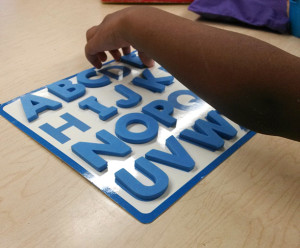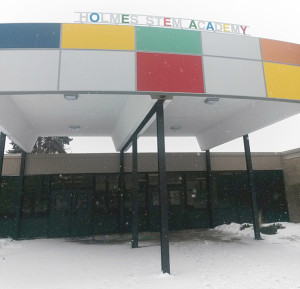Creating stronger partnerships and collaboration between community organizations and educational institutions is critical to increase knowledge sharing as well as utilizing limited resources in a way which benefits more institutions than one. Emphasizing community partnerships has become increasingly important in the Flint Community Schools as they went through an extensive planning process to eliminate their growing deficit as student enrollment rates have dropped. This issue is not unique to Flint, but is becoming more typical across the nation as funding for K-12 and higher education has been cut. In Flint, a partnership between the Flint Community Schools, the City of Flint, and a group of funders, has created a re-investment into Community Education.
Community Education is a growing concept in K-12 education. The concept focuses on attaching more community partners to public and sometimes charter schools. Community partners can offer a range of resources such as tutoring, health services, cross-generational education courses, and extra-curricular programs. Schools which embrace this concept often have extended hours and are open on the weekends. Throughout the last four months, Jennifer Burger, AmeriCorps VISTA member through University Outreach, has worked to establish strong relationships with  staff and faculty at Brownell-Holmes STEM Academy. The STEM Academy is the pilot site for the new Community Education Model through Flint Community Schools. The working group of the Flint Community Schools, the City of Flint, and funders chose Brownell-Holmes Stem Academy because of its large student body and the schools emphasis on STEM education. The Crim Fitness Foundation has hired a Community Education Coordinator to lead the effort of increasing resources and partners into all Flint Schools in the coming years. In the coming months, Jennifer Burger will give an update on her efforts to increase University of Michigan-Flint programs to the Flint Community Schools.
staff and faculty at Brownell-Holmes STEM Academy. The STEM Academy is the pilot site for the new Community Education Model through Flint Community Schools. The working group of the Flint Community Schools, the City of Flint, and funders chose Brownell-Holmes Stem Academy because of its large student body and the schools emphasis on STEM education. The Crim Fitness Foundation has hired a Community Education Coordinator to lead the effort of increasing resources and partners into all Flint Schools in the coming years. In the coming months, Jennifer Burger will give an update on her efforts to increase University of Michigan-Flint programs to the Flint Community Schools.
Community Education as a nationwide model originated in Flint, as an initiative which Charles Stewart Mott and Frank Manley in 1935. Mott and Manley envisioned community schools as assets to the community which should be open to all members of the public for enrichment classes and activities. Flint was the model for community education until the 1970’s when the decline in population and students would eventually eliminate funding for the initiative. Although Flint discontinued Community Education, many Cities, Non-Profits, and School Districts across the nation continue to build on Flint’s model. Widely known models are the Harlem Learning Zone, Citizen Schools, and the Netter Center at Penn State.
